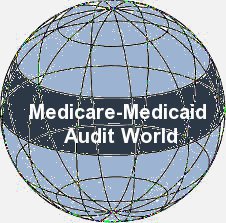 Over the past couple of weeks there has been considerable press attention to the fact that over the last 10 years bills submitted by doctors to CMS for evaluation and management services have increasingly used E/M Codes 99214 and 99215 in place of lower cost 99211 and 99212 codes, coupled with the possibility that the increased use by hospitals and doctors of Electronic Health Record (EHR) software as the result of the CMS EHR incentive program, has resulted in increased fraudulent billing by providers. Although press reports conflate the two issues, they do not appear to be related.
Over the past couple of weeks there has been considerable press attention to the fact that over the last 10 years bills submitted by doctors to CMS for evaluation and management services have increasingly used E/M Codes 99214 and 99215 in place of lower cost 99211 and 99212 codes, coupled with the possibility that the increased use by hospitals and doctors of Electronic Health Record (EHR) software as the result of the CMS EHR incentive program, has resulted in increased fraudulent billing by providers. Although press reports conflate the two issues, they do not appear to be related.
Reports on Evaluation and Management Billing
 In May 2012, the HHS OIG released a report entitled “Coding Trends of Medicare Evaluation and Management Services” in which it analyzed Evaluation and Management coding for (1) established patient office visits, (2) subsequent inpatient hospital care, and (3) emergency department visits. It found that the use of codes 99214 and 99215 increased 17% between 2001 and 2010, the use of codes 99232 and 99233 increased 6 and 9 percent, respectively between 2001 and 2010, and the use of code 99285 rose 21 percent, increasing from 27 to 48 percent of billings during the same period.
In May 2012, the HHS OIG released a report entitled “Coding Trends of Medicare Evaluation and Management Services” in which it analyzed Evaluation and Management coding for (1) established patient office visits, (2) subsequent inpatient hospital care, and (3) emergency department visits. It found that the use of codes 99214 and 99215 increased 17% between 2001 and 2010, the use of codes 99232 and 99233 increased 6 and 9 percent, respectively between 2001 and 2010, and the use of code 99285 rose 21 percent, increasing from 27 to 48 percent of billings during the same period.
On September 15, 2012, the Center for Public Integrity released a study entitled “How doctors and hospitals have collected billions in questionable Medicare fees.” This article purports to report on the Center’s analysis of data obtained from CMS on Evaluation and Management billing as well as how the widespread adoption of EHR may be contributing to fraudulent upcoding by hospitals and doctors.
 On September 21, 2012, the New York Times published an article entitled “Medicare Bills Rise as Records Turn Electronic” referencing both the May OIG report and the Center for Public Integrity article. The Times’ article, which purported to analyze CMS data from the American Hospital Directory, pointed out the same trends as the earlier reports, but attributed the difference to hospitals converting from paper records to EHRs. The Times article apparently prompted a strong letter from the Secretary of Health and Human Services and the Attorney General to the CEO’s of five hospital trade associations. In their letter of September 24, 2012, the Secretary and Attorney General warned against the use EHR software to commit healthcare fraud and threatened prosecution for fraudulent billing. The American Hospital Association responded the same day as did the Association of Academic Health Centers.
On September 21, 2012, the New York Times published an article entitled “Medicare Bills Rise as Records Turn Electronic” referencing both the May OIG report and the Center for Public Integrity article. The Times’ article, which purported to analyze CMS data from the American Hospital Directory, pointed out the same trends as the earlier reports, but attributed the difference to hospitals converting from paper records to EHRs. The Times article apparently prompted a strong letter from the Secretary of Health and Human Services and the Attorney General to the CEO’s of five hospital trade associations. In their letter of September 24, 2012, the Secretary and Attorney General warned against the use EHR software to commit healthcare fraud and threatened prosecution for fraudulent billing. The American Hospital Association responded the same day as did the Association of Academic Health Centers.
 Medicare-Medicaid Audit World
Medicare-Medicaid Audit World






